Community Concerns Lead to Withdrawal of Cannabis Retail Proposal in Orchard Lake
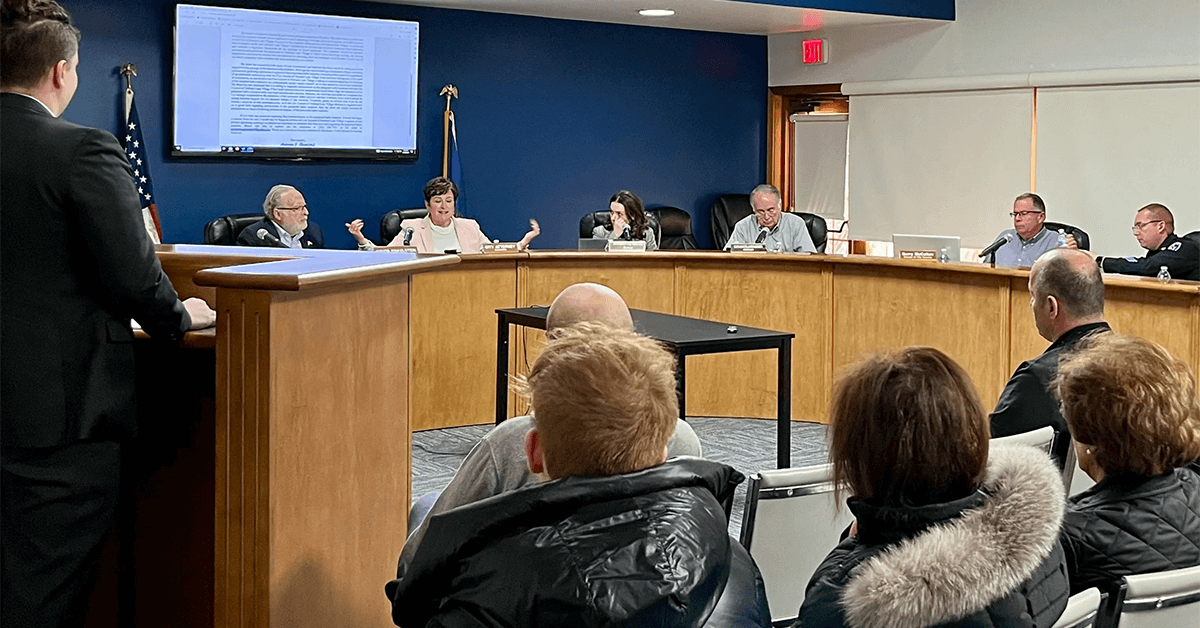
Orchard Lake Village, a quaint and serene community in Oakland County, Michigan, found itself at the crossroads of a significant and potentially transformative decision. The issue at hand was a proposed ordinance to permit a cannabis retail operation within its boundaries, a move mirroring challenges faced by other small communities in the county. This development was brought into the spotlight during a special meeting convened on a Wednesday evening, attended by over 40 residents, signaling a high level of public interest and concern.
Meeting Dynamics and Public Engagement
The meeting was notable not just for its attendance but also for the decorum and civility with which discussions were conducted, a point of pride mentioned by Mayor Norm Finkelstein. He remarked on the unprecedented turnout and the respectful manner in which residents participated in the democratic process. The assembly was presented with a detailed explanation of the proposed ordinance by Mary M. Kucharek, the city's attorney, who laid out Orchard Lake Village's possible courses of action. These included adopting the ordinance as presented, amending it, drafting an alternative ordinance for voter consideration, or allowing a petition drive to proceed. A critical legal boundary was underscored: city officials could not use municipal funds to campaign either for or against the proposal.
Stakeholder Perspectives
Representing the Belleville-based Blue Sky Cannabis Co., attorney Anderson Grandstaff articulated the stance of his client, Sam Pernick, the business owner aiming to establish the cannabis shop. The city council engaged in a rigorous inquiry, delving into the specifics of the business plan, including staffing, location, and the degree of influence Pernick would exert over the ordinance. Grandstaff's responses highlighted the potential for amending the ordinance, though he emphasized the indispensability of certain elements, such as the scoring system for permit issuance.
The discussion also ventured into the realm of broader implications, reflecting on the experiences of Rochester, Birmingham, and Keego Harbor — three other Oakland County cities that had recently rejected similar proposals. This historical context set the stage for a vibrant public comment period, where concerns about traffic, boating safety, and cannabis access were voiced, alongside a unifying theme of protecting children from increased drug exposure.
Community Reactions and Concerns
Residents took the opportunity to express a spectrum of opinions and anxieties. Joyce Herman questioned the tangible benefits to the city and its inhabitants, leading to a debate on the fiscal returns to the community versus the gains accruing to the business owner. Suzanne Bell and Carolyn Pender highlighted the need for vigilance and proactive community organizing to counteract any future ballot proposals. The discussion touched upon the motivations of a Belleville-based business owner eyeing Orchard Lake Village for cannabis sales, sparking debate over the necessity and desirability of such an enterprise in a community prized for its recreational ambiance.
Turning Point and Withdrawal
A pivotal moment arrived the morning after the meeting when Grandstaff communicated his client's decision to retract the ordinance change proposal, halt the petition drive, and abandon the pursuit of a retail location in Orchard Lake Village. This announcement marked a significant turning point, reflecting perhaps the efficacy of community engagement and the persuasive power of public opinion.
Wider Context and Future Directions
The Orchard Lake Village episode is emblematic of a broader narrative unfolding across Michigan, as communities grapple with the opportunities and challenges posed by cannabis legalization. The episode sheds light on the intricacies of local governance, the power of public discourse, and the balancing act between business interests and community values.
Broader Implications and Legal Nuances
The Orchard Lake Village scenario underscores a growing trend across Michigan and the United States: the complex navigation required by municipalities in addressing cannabis legislation. This incident provides a case study in the nuances of local governance, especially regarding issues that elicit strong public sentiment and legal intricacies. The discussions highlighted the delicate balance between respecting the autonomy of business ventures and safeguarding community standards and well-being.
Legal Framework and Municipal Autonomy
One of the critical aspects of this situation was the legal framework within which municipalities operate. The options laid out by the city attorney presented a spectrum of responses, each with its legal and social implications. This scenario underscored the autonomy municipalities have in crafting local ordinances that reflect the community's values while adhering to state laws. The prohibition against using city funds for campaigning on such issues further emphasizes the legal boundaries within which civic discourse occurs.
Community Engagement and Democratic Processes
The active participation of Orchard Lake Village residents in the public meeting and the subsequent discussions exemplified the essence of community engagement in democratic processes. The ability of citizens to voice concerns, ask questions, and directly engage with proposals affecting their community is a cornerstone of local governance. This event highlighted the importance of transparent, open forums that allow for a wide range of voices to be heard and considered.
Economic Considerations and Community Benefits
The debate over the proposed cannabis retail operation brought to the fore questions about economic benefits, tax revenue, and the distribution of financial gains. While the potential for increased tax revenue was noted, residents and officials critically assessed who the primary beneficiaries of such an operation would be. This evaluation reflects broader considerations in cannabis legislation debates nationwide, where economic incentives are weighed against social and safety concerns.
The Power of Public Sentiment
The withdrawal of the cannabis retail proposal in the wake of public opposition illustrates the significant impact of community sentiment on policy decisions. The concerns raised by residents about traffic, safety, and youth access to cannabis played a crucial role in shaping the outcome. This instance demonstrates how public opinion can influence business decisions and legislative outcomes, emphasizing the power of collective community action.
Looking Forward: Lessons Learned and Future Challenges
The Orchard Lake Village experience offers several lessons for other municipalities facing similar proposals. It highlights the importance of informed public discourse, the need for comprehensive understanding of legal and economic implications, and the value of community consensus-building. As cannabis legislation continues to evolve, the experiences of communities like Orchard Lake Village will undoubtedly inform future debates and policy decisions.
This case also points to the ongoing challenges as more communities navigate the complexities of integrating cannabis businesses into their local economies and social fabrics. The balance between fostering economic development, ensuring public safety, and maintaining community character will remain central to these discussions.
Conclusion
The Orchard Lake Village cannabis ordinance proposal and its subsequent withdrawal represent a microcosm of the broader dialogues happening across communities in Michigan and beyond. Through this detailed examination, it becomes evident that the intersections of law, community engagement, economic considerations, and public sentiment are complex and multifaceted. The proactive and engaged response of the Orchard Lake Village community serves as a powerful example of how civic participation and dialogue can shape the fabric of local governance and community life.
Lapeer City Explores Changes to Cannabis Business Ordinances Amid Odor Concerns
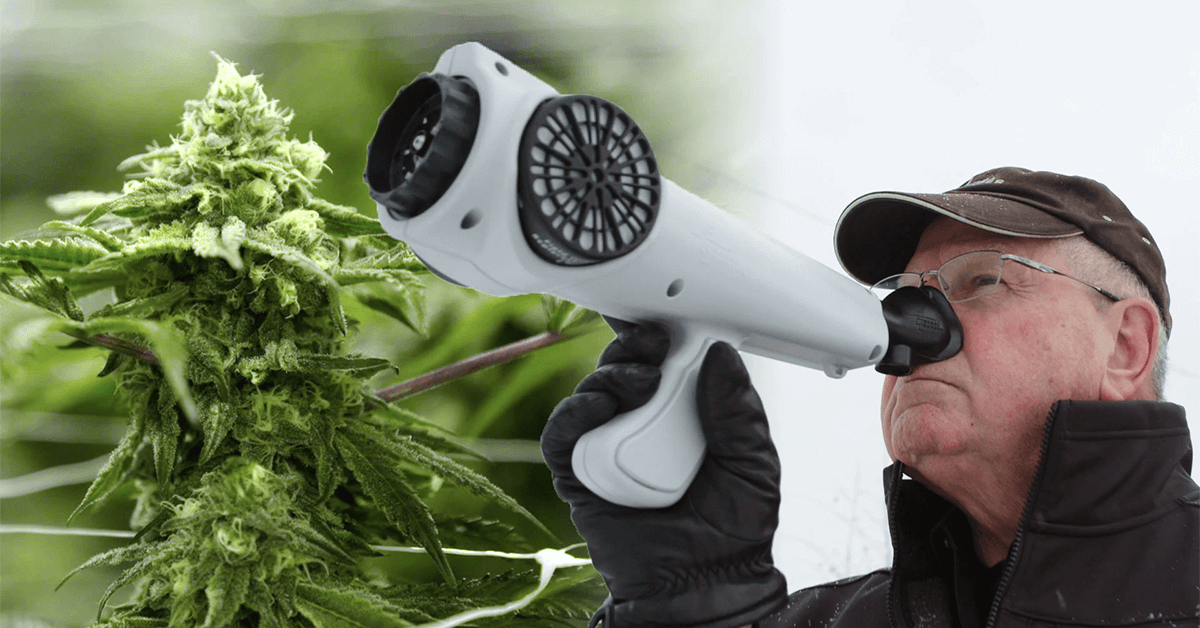
Lapeer's city management, under the guidance of City Manager Mike Womack, is actively addressing community concerns regarding the odors emanating from cannabis cultivation facilities. Concurrently, there is an ongoing effort to amend the local ordinances that govern cannabis enterprises within the area.
In an attempt to thoroughly assess and potentially revise the regulations and policies surrounding the placement and operation of cannabis businesses, the Lapeer City Commission implemented a six-month pause on accepting new cannabis business applications in January. This moratorium comes despite the city having already issued licenses to seven adult-use cannabis retail outlets, without imposing a cap on the number of cultivation and processing facilities.
The recommendation to reassess how cannabis businesses are regulated came from the Lapeer Planning Commission. They advised that the City Commission consider requiring all cannabis-related businesses to obtain a special land use permit. This permit system would provide the city with a mechanism to revoke licenses in the event of regulatory non-compliance, offering a direct method for enforcement.
Addressing the odor complaints, Womack expressed that mitigating such issues, whether cannabis-related or otherwise, presents a significant challenge. He highlighted his approach of seeking voluntary cooperation from businesses alleged to be the source of odors, rather than immediately resorting to enforcement measures. This approach has led to several constructive discussions with the involved cannabis businesses.
Womack shared his belief that the businesses are not intentionally causing odor issues or seeking negative attention from these emissions. However, despite their efforts, the problem persists. He appealed for public patience and trust as the city works to address this complex issue in a fair and considered manner.
The review of the moratorium and ordinance adjustments is an ongoing process. Womack is collaborating with city staff, the city attorney, the City Commission, and even the businesses themselves to identify and implement solutions that balance the interests of all parties. The final decision on any changes to the city's cannabis regulations will rest with the City Commission, following Womack's proposal based on comprehensive discussions and analyses.
Mecosta Village Debates Introduction of Cannabis Dispensary
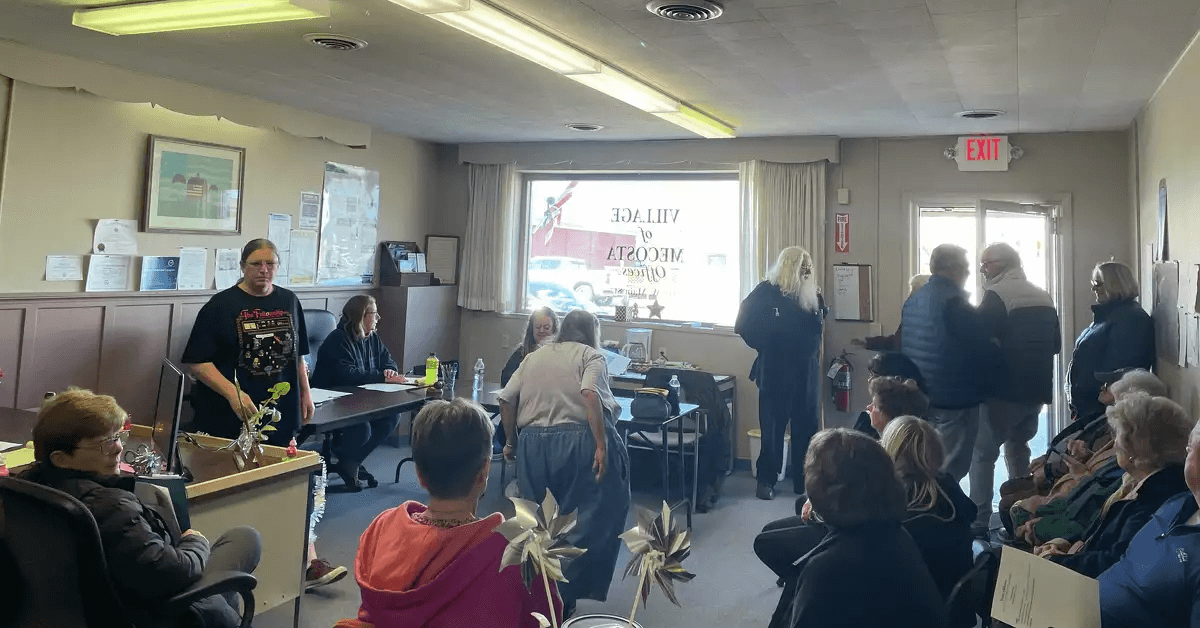
In a well-attended gathering at the Mecosta Village Office, community members voiced their opinions on a proposed cannabis ordinance that could pave the way for the opening of a dispensary within the village. Despite the large turnout nearly causing a postponement, attendees insisted on proceeding with the discussion.
Joyce Eichenberg started the conversation with a personal testimony, praising the benefits of THC gummies for her chemotherapy-induced neuropathy. "Medication doesn't work," she stated, highlighting the therapeutic value of cannabis.
However, Deb Beemer raised concerns about the olfactory impact of cannabis cultivation, worrying about the potential discomfort for residents and the implications for children in the area.
Tamara Gillis clarified that the discussion was centered around a retail outlet, not a cultivation facility. She emphasized the importance of thorough preparation and ordinance refinement before any formal adoption.
Jerry Wallace referenced the nearby community of Morley, which had recently overturned its ban on cannabis businesses, citing economic necessity as a driving factor.
Mary Ann Lenon expressed reservations about introducing a dispensary to Mecosta, fearing it might alter the character of the historic, community-focused village.
Patricia Kane shared her personal journey with cannabis, describing it as a crucial pain relief method after a severe accident. The proximity of a local dispensary would significantly ease her access to these benefits, she argued, given her limited mobility and financial constraints.
Ryan Howard cautioned against the potential long-term negative impacts on local business development, suggesting that the presence of a cannabis shop could deter other types of businesses from establishing themselves in the village.
Despite some opposition, village employee Chris Smith argued that the revenue generated from a dispensary could vitalize the struggling village. He mentioned the financial benefits seen in Big Rapids and other townships from cannabis tax revenue, though this point was contested by Linda Howard, who demanded accuracy in the discussion.
The debate touched upon the recent allocation of $886,000 in cannabis tax revenue to Mecosta County and Big Rapids from the state of Michigan, underscoring the financial stakes involved.
Morton Township Supervisor Mark Klumpp implored the village council to consider the broader implications of such an ordinance on community relations and the township's integrity.
Concluding the public hearing, Village Council President Ann Wrobbel stated that more time was needed to deliberate on the diverse perspectives offered. The council plans to reconvene on April 1st at 6 p.m. at the village office to further discuss the ordinance.
Orchard Lake to Deliberate on Cannabis Business Proposal in Upcoming Council Meeting
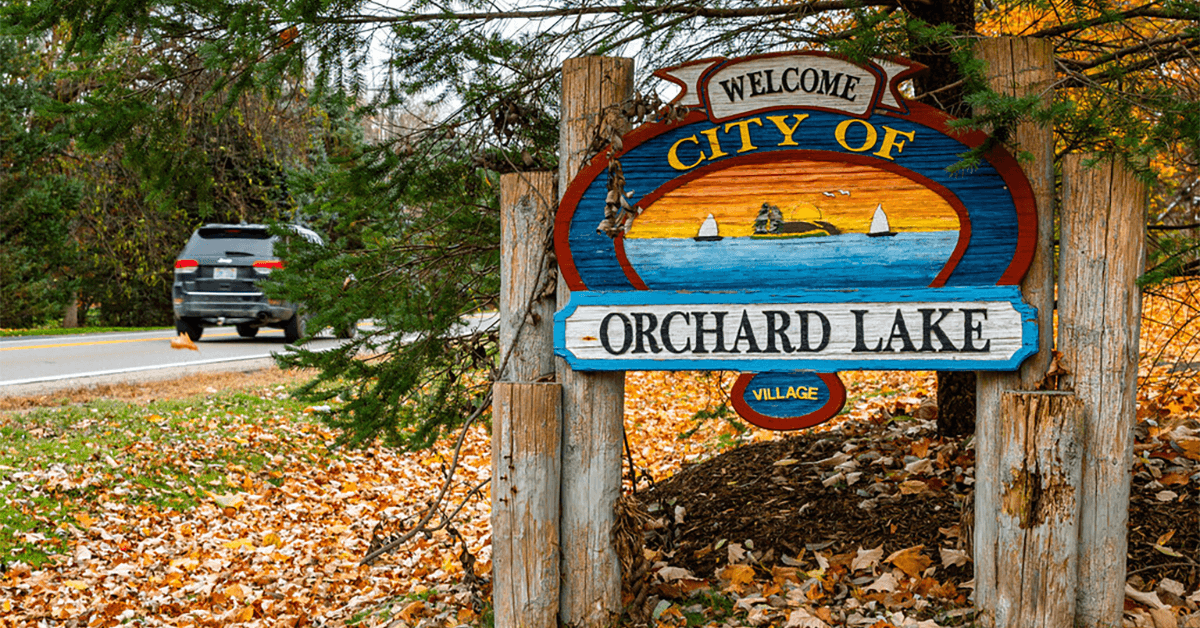
Residents of Orchard Lake are currently facing a significant decision regarding the potential introduction of cannabis sales within their city limits. A real estate developer specializing in cannabis properties is pushing for the city to reconsider its stance against cannabis businesses. In response to this effort, the city council has scheduled a special meeting to deliberate on the matter.
The city's building official, Gerry McCallum, disclosed that Orchard Lake had previously decided against hosting cannabis-related businesses. However, this position is now being challenged. McCallum highlighted a recent influx of inquiries from residents who received misleading mailings that mimicked official city communications. These mailings, which were actually distributed by advocates for cannabis sales, falsely appeared to be conducting a survey on behalf of the city. McCallum clarified that these mailings were not sanctioned by the city and were instead initiated by Jeffrey Yatooma, a cannabis real estate developer.
This campaign has sparked controversy among the community, with many residents expressing opposition to the idea of permitting cannabis businesses in Orchard Lake. The city also received formal communication from Anderson Grandstaff, an attorney based in Ypsilanti, who is representing the push to overturn the city's ban on recreational cannabis. Grandstaff outlined two options for city officials: either adopt the proposed ordinance, with or without amendments, or prepare for a petition drive that could lead to a ballot initiative.
With a population of just over 2,300, Orchard Lake would require approximately 80 signatures to bring the issue to a vote. The cost of such an election to the city would vary depending on whether it is conducted as a standalone ballot initiative or included in a larger election cycle.
The upcoming council meeting, scheduled for 7 p.m. on Wednesday, March 27th, 2024, at City Hall, is set to offer a platform for Grandstaff and his client to present their proposed ordinance. While no decisions will be made during this meeting, it will allow for a public discussion, with city council members and residents engaging in dialogue. Public attendees will have the opportunity to voice their opinions, though each speaker will be limited to three minutes.
This situation arises from concerns about the suitability of introducing cannabis businesses into Orchard Lake's limited commercial districts. The community's initial decision to opt out of cannabis sales was influenced by the desire to maintain the character of these areas. As the city council and residents weigh the arguments, there is a shared hope that the outcome will reflect the community's preferences regarding the future of cannabis sales in Orchard Lake.
Eastpointe to Debate Economic Revival Through Recreational Cannabis Licensing
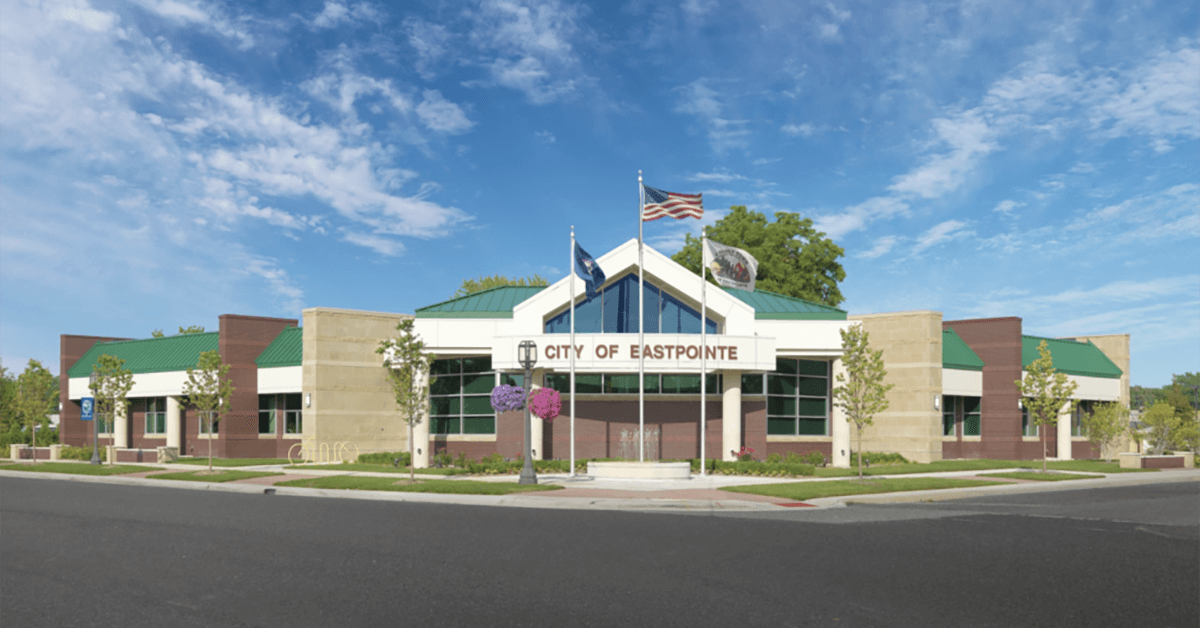
The Eastpointe City Council is actively considering a significant shift in its stance on cannabis by contemplating the introduction of recreational cannabis businesses within its jurisdiction. The council has directed City Attorney Richard Albright to prepare a comprehensive ordinance to this effect, with a council vote anticipated next month.
This development followed Councilwoman Margaret Podsiadlik's initiative to bring this topic to the forefront during the March 19th council meeting. Podsiadlik argues that the introduction of recreational cannabis establishments could serve as a catalyst for economic revitalization in Eastpointe. She noted the visible vacancies around the city as a sign that new ventures, such as recreational cannabis stores, could infuse much-needed vibrancy and attract more business to the area.
Despite previously granting licenses to three medical cannabis outlets—Holistic Health Wayne, Moses Roses, and Common Citizen—Eastpointe has yet to see these facilities commence operations. The councilwoman believes that the shift towards recreational cannabis could provide a more lucrative opportunity for these licensed entities, hence their hesitance to open under the current medical-only framework.
Richard Albright presented compelling data to the council, highlighting a stark contrast in the state's cannabis market dynamics: a 76.2% decline in medical cannabis sales juxtaposed with a 32.8% surge in adult-use cannabis sales over the past year. In 2023 alone, Michigan recorded $267.7 million in adult-use cannabis sales, dwarfing the $3.2 million in medical sales. This data underscores the shifting consumer preference towards recreational cannabis, reinforcing the potential economic benefits of adopting such a model in Eastpointe.
The city, having opted out of recreational cannabis businesses following Michigan voters' approval in 2018 while permitting medical cannabis establishments, now faces a pivotal decision. The council must consider whether to expand the current limit of three licenses and whether to extend preferential treatment to the existing medical cannabis licensees for recreational licenses.
Council member Curley expressed support for granting recreational licenses to the current medical license holders, advocating for a direct transition without opening a new bidding process. Conversely, Councilman Rob Baker, a long-standing opponent of cannabis businesses in Eastpointe, cautioned against bypassing an open application process. He warned of the legal repercussions and the dissatisfaction it could breed among potential new applicants.
A final decision on the proposed recreational cannabis licensing scheme is slated for discussion at the April 2nd City Council meeting, signaling a potentially transformative moment for Eastpointe's economic and regulatory landscape in relation to cannabis.
Royalton Township Residents to Decide on Cannabis Dispensary Limits
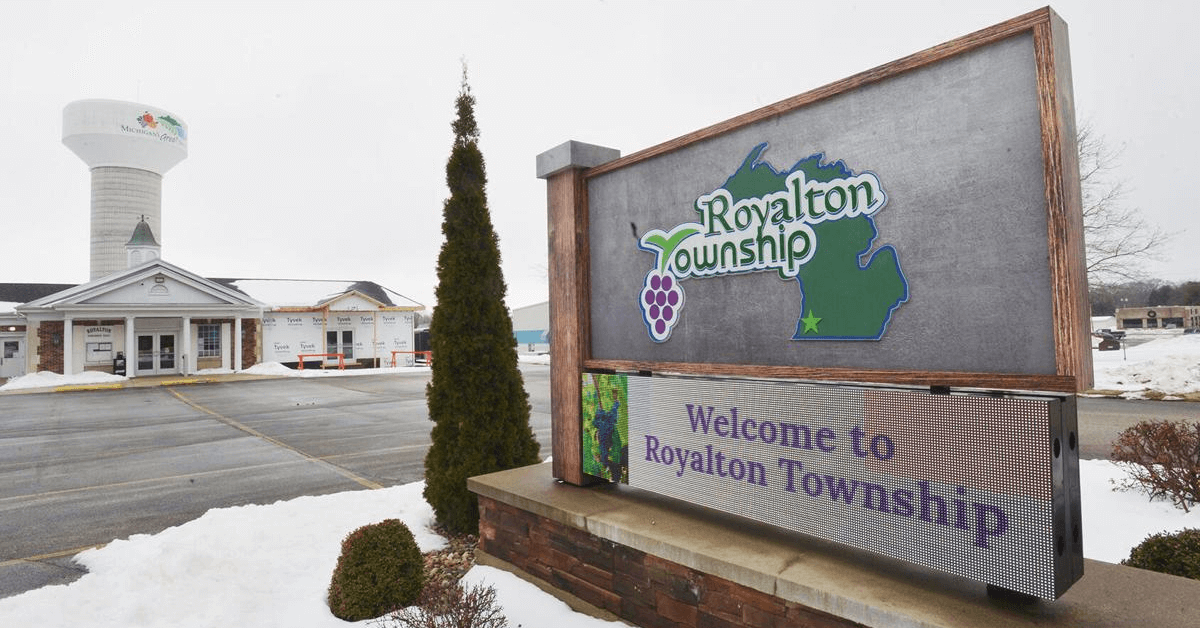
Residents of Royalton Township in Southwest Michigan will soon have the chance to decide on a significant local issue: the potential introduction of up to three cannabis dispensaries within their community's boundaries. This comes as proponents of the initiative successfully submitted approximately 150 signatures earlier this week, aiming to place the question on the ballot for the May Primary Election.
Royalton Township Clerk Rachel Bernard confirmed that out of these submissions, 133 signatures were validated against the required 132, thus qualifying the measure for inclusion on the upcoming ballot. Bernard noted that the primary reason for the disqualification of the remaining signatures was that they belonged to individuals not registered to vote in Royalton Township.
Should the residents vote in favor, the ordinance will cap the number of cannabis-related businesses at three each for growers, processors, microbusinesses, and retail outlets. However, it explicitly prohibits the operation of secure transporters, safety compliance facilities, places for cannabis consumption, venues for temporary cannabis events, or any other types of cannabis establishments not specifically allowed by the ordinance.
Demographic information from the United States Census in 2022 indicates that Royalton Township has a population of 5,141, with approximately 2,084 residents aged 50 and over. This demographic detail adds a layer of context to the upcoming decision, reflecting the diverse age groups that may weigh in on the future of cannabis businesses in their locale.


 Helpful Links
Helpful Links